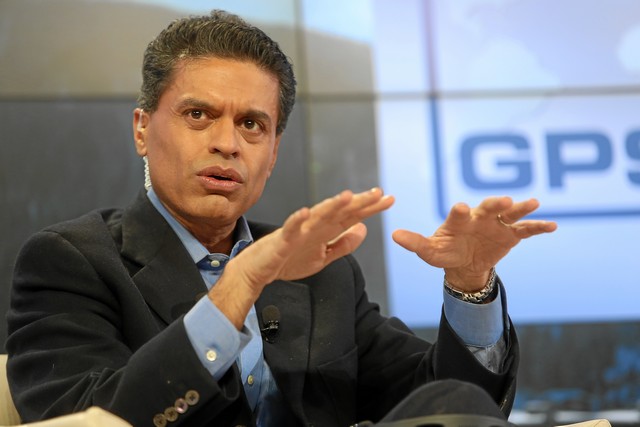Fareed Zakaria’s “China’s growing clout” (NST November 15 2014) is a stark attempt to warn readers of the alleged danger of some of China’s current moves in the regional and international arena. He says, “… Xi’s government has been laying down plans for a very different foreign policy — one that seeks to replace the American-built post-1945 international system with its own. There is clearly a debate going on in Beijing, but if China continues down this path, it would constitute the most significant and dangerous shift in international politics in 25 years.”
Why would it be a “dangerous shift?” Dangerous to whom? Fareed gives us a hint of what he means when he suggests that “China has begun a patient, low-key but persistent campaign to propose alternatives to the existing structure of international arrangements in Asia and beyond.” More precisely, he laments that “This past summer, China spearheaded an agreement with Brazil, Russia, India and South Africa (along with China, known as the BRICS countries) to create a financial organisation that would challenge the International Monetary Fund. Last month, Beijing launched a US $50 billion (RM 160 billion) Asian Infrastructure Investment Bank, explicitly as an alternative to the World Bank. And last week, Xi declared that China would spend US$40 billion to revive the old “Silk Road” trading route to promote development in the region.”
A lot of people in Asia and elsewhere would welcome an alternative to the IMF. The millions of Indonesians who in the aftermath of the 1998 Asian financial crisis were driven into the clutches of poverty mainly by IMF conditionalities would be among them. An institution which helps to perpetuate a neo-liberal financial order at the expense of ordinary people is a travesty of justice. The World Bank which has been woefully inadequate in its response to the infrastructure needs of poor nations is also a disappointment. The Infrastructure Bank that China has proposed is much more focused on the development agenda of the Global South.
The Silk Road project and the hundreds of other projects that the Chinese have committed themselves to in Asia and in the other continents will potentially spur a massive socio-economic transformation which will benefit hundreds of millions of men, women and children on earth. It will of course strengthen China’s position as a major economic actor on the global stage. It could lead to a global power shift which will pique the one nation that in spite of its decline is determined to perpetuate its hegemony.
Bringing this hegemony to an end is in the interest of humanity. Fareed does not think so. He is of the view that “the current international order… has been a platform on which peace and prosperity have flourished in Asia for decades.” He has forgotten the Korean War (1950-3), the Vietnam Tragedy (1961-1975) which claimed 3 million Vietnamese lives, and the bloodbath in Indonesia (1965) following a coup in which the CIA was deeply implicated. Since Asia includes Afghanistan, Palestine, Iraq and Syria, what peace and prosperity have the citizens of these countries known when the turmoil engendered partly by the hegemon’s nefarious agenda has resulted in the death of millions of innocent people?
This is why a change is crucial. What is significant is that China is helping to end US helmed hegemony without war or violence. The rise of China — unlike the rise of every Western power in the last 500 hundred years or so — has been remarkably peaceful.
Even the way in which China is bringing about this change — which Fareed alludes to —is unique. China continues to operate within the existing framework of global structures while creating new institutions which will cater for change.
Of course, as change takes place the flaws and foibles of this ascendant power will also become more obvious. We have a duty to critique them. But we must never lose sight of the larger significance of this moment in history.
Dr. Chandra Muzaffar,
President,
International Movement for a Just World (JUST).
Malaysia.
17 November 2014.

